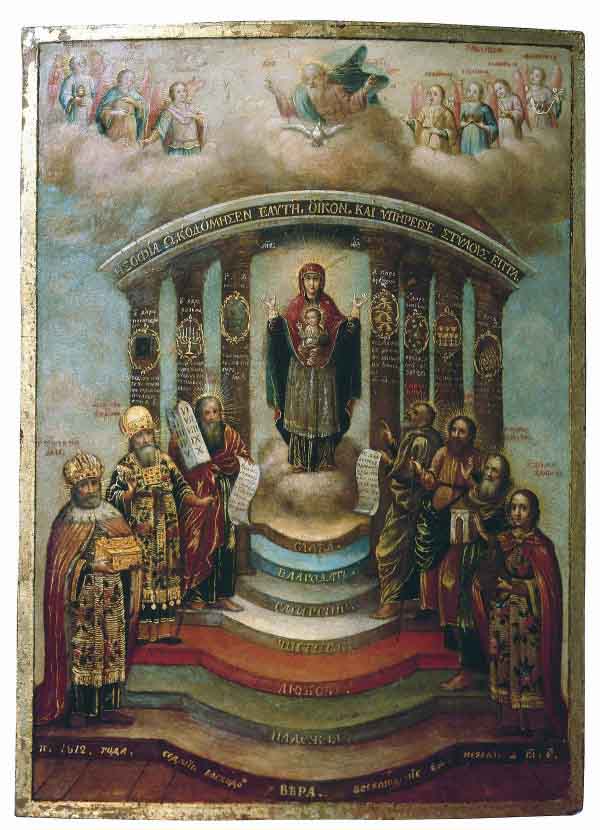The history of Western music did not begin in the baroque period. A continuous musical tradition can be traced back at least as far as the early middle ages and this music itself has links to the musical traditions of ancient Greece. Much of this music fell into relative obscurity due to its notation and the anonymity of its composers, however throughout the 20th century a concerted effort on the part of scholars and performers has resulted in a revival of much of the music of the middle-ages and the renaissance. This series will present selections of music from the middle-ages and the renaissance together with some historical and philosophical background along with reflections on why it is relevant to metalheads.
The earliest medieval music that has been preserved to the present day is monophonic, that is to say it consists of a single melodic line without a harmonic accompaniment. This music has mainly been preserved in the form of the sacred chants of both the Catholic and Orthodox churches. The chants associated with the Catholic church are relatively well known to Western ears as Gregorian chant, whereas the chants of the Orthodox church are less familiar.
From a purely technical standpoint these pieces are interesting due to their use of different modes (scales) and the fact that they focus on pure melody, rather than using melodic lines that conform to a harmonic structure. This approach will not be entirely unfamiliar to metal listeners given that death metal in particular tends to utilise melodic lines which are not rooted to a particular harmonic scheme. From an artistic standpoint these chants are also of interest to metal listeners. Their contemplative and reverent nature speaks to a mentality more aligned with metal than with modern incarnations of Christianity and suggest an understanding of that religion which has long since been forgotten.
The following is an example of Byzantine chant (the chant of the Greek Orthodox Church). Note that it utilises a vocal drone which is not entirely static but moves away from and returns to the tonic note of the mode in order to create tension and resolution. This technique may be considered a predecessor of modern harmony but the music is still essentially focused on melodic material.
https://www.youtube.com/watch?v=MmH0Ntc1aAU
11 CommentsTags: christianity, Early Music for Metalheads, greece, Gregorian, Medieval, melodic line, Middle Ages, orthodox, Renaissance, t, Tom Devereux



